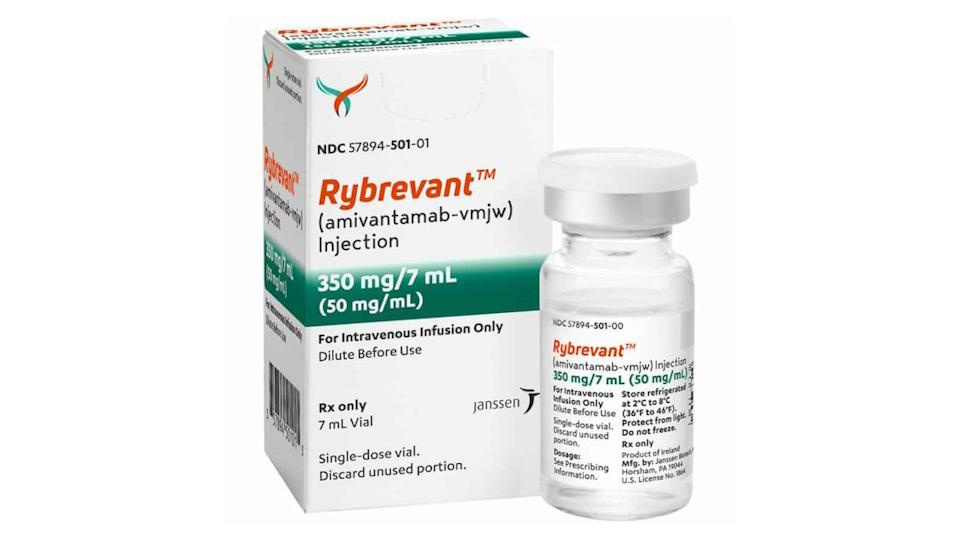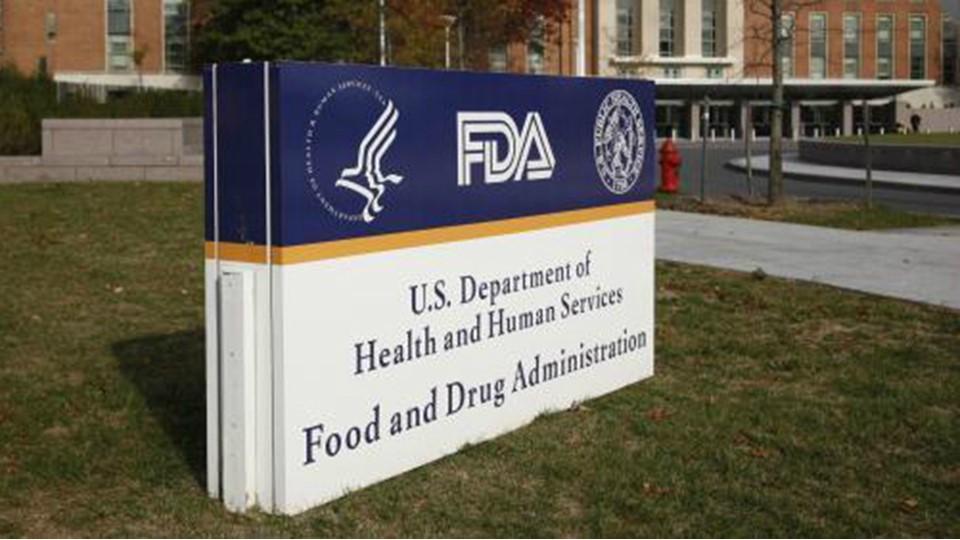J&J gets CHMP nod for Rybrevant in first-line lung cancer

Johnson & Johnson’s Rybrevant is on the brink of EU approval as a treatment for a subset of patients with newly diagnosed EGFR-positive lung cancer, after a recommendation from the EMA’s Human Medicines Committee.
The CHMP has recommended Rybrevant (amivantamab) for use alongside carboplatin and pemetrexed chemotherapy as a first-line treatment for advanced non-small cell lung cancer (NSCLC) with EGFR exon 20 insertion mutations.
The therapy – recently approved for the same indication in the US – moves into a setting recently vacated by Takeda’s Exkivity (mobocertinib), which was pulled from the market last year after a trial that was supposed to confirm its efficacy failed to deliver a positive result. It is already cleared for use in patients who have failed first-line chemo.
The CHMP’s verdict is based on the PAPILLON study, which showed that compared to chemo alone Rybrevant plus chemo cut the risk of progression or death by 60% in patients whose NSCLC expressed EGFR exon 20 insertion mutations.
Patients treated with J&J’s drug went 11.4 months without their disease becoming worse, compared with 6.7 months for those in the control group. There was also a trend in favour of improved overall survival (OS), with a 32.5% improvement in the Rybrevant group at an interim analysis.
"Lung cancer remains the leading cause of cancer-related mortality in Europe," commented Henar Hevia, head of oncology for J&J EMEA. "As patients living with EGFR exon 20 insertion-mutated NSCLC face a particularly poor prognosis, the need for innovative combinations in the frontline setting is vital."
EGFR mutations are the most common mutation in NSCLC that can be targeted with drug treatment, with around 90% of cases caused by exon 19 deletion and exon 21 L858R mutations. Exon 20 insertion mutations are the third most common.
J&J has designs on extending the indications of Rybrevant to include patients with other EGFR mutations, which could raise pressure on AstraZeneca’s market-leading EGFR inhibitor Tagrisso (osimertinib).
The company recently presented the results of the phase 3 MARIPOSA study, looking at the combination of Rybrevant with Yuhan Corp-partnered Leclaza (lazertinib) as a first-line targeted therapy for EGFR-positive NSCLC, showing it was more effective than AZ’s drug at improving progression-free survival (PFS).
Rybrevant is a bispecific antibody injection targeting EGFR and MET, while lazertinib is an oral third-generation EGFR tyrosine kinase inhibitor like Tagrisso, which is AZ’s top-selling drug, with sales of more than $5.8 billion last year. J&J has previously said approval of the combination could drive sales to $5 billion a year.
AZ recently raised the stakes, however, with the recent FDA approval of Tagrisso as a combination with chemo for treatment-naïve EGFR-positive NSCLC patients, based on the results of the FLAURA-2 trial.
The company said the data makes the combination the best option for patients who require more intensive treatment upfront; for example, as a result of a high tumour burden at diagnosis and/or tumours that have spread into the central nervous system.
Other potential rivals are coming through the industry pipeline, meanwhile, including ArriVent BioPharma’s pan-EGFR mutant inhibitor furmonertinib – already approved in China and in phase 3 elsewhere for NSCLC with EGFR exon 20 insertions – and sunvozertinib from AZ spinout Dizal Pharma, which is also in late-stage testing in this setting.












